 BEICHUAN, China— China has decided not to rebuild the largest town destroyed in this month's savage earthquake and may instead leave the town's towers of rubble as a memorial park in place for generations of awe-stricken visitors to witness.Tucked in a steep river valley atop the unstable Longmen Fault, this onetime town of 20,000 people is in too vulnerable a location to rebuild, officials said."Experts say the only option is to move the town and keep the remains," said Zhang Jie , press spokesman for Mianyang municipality, which oversees this town.The State Council , China's cabinet, will make a final decision on whether to turn Beichuan into a memorial by the end of the month, Zhang said.He added that survivors of the quake in Beichuan have been relocated to the nearby cities of Mianyang and Anxian and will not be permitted to return to their former home. Soldiers already guard entry to the ruined city, barring access due to fears of infection and concern that a river blocked by landslides above the town, forming two lakes, may suddenly burst, letting a deluge down the valley.Of Beichuan's former inhabitants, about 8,600 are known to have died and another 5,894 are considered missing. The rest appear to have survived.State media have reported that residents who lost property in the city, and in other quake-devastated areas, will receive some compensation and subsidies but the specific amounts have not been released. China won't be the first country to seal off a town devastated by natural disaster.In 1985, a volcanic eruption melted an icecap on an Andean peak, triggering a mudslide that buried the town of Armero in Colombia , killing 23,000 people. The site of the buried town was later declared "holy ground" and turned into a commemorative park.A huge memorial at Beichuan might be a fitting tribute to a calamity that is likely to be seen by historians as a watershed moment for China, an event that saw the nation mobilize in massive numbers to help the victims, and embrace an emotional patriotism that at times seems feverish.China's senior leaders personally arrived in the quake-stricken region to organize relief efforts. They allowed unusual levels of media freedom to satiate a public hungry for information, and gave an unusually visible role to the People's Liberation Army, which deployed 130,000 soldiers to help with the disaster.Tens of thousands of ordinary Chinese volunteers flocked to the quake zone in Sichuan Province to offer their services."People are giving their help in any way they can. If they have money, they are giving money," said Zhu Chujun , who is part of a volunteer team from the eastern city of Hangzhou offering psychological counseling to victims.If emotions are high in China, Zhu said it is because of a confluence of events."Everyone knows that 2008 is a special year," she said, referring to the upcoming Beijing Summer Olympic Games.
BEICHUAN, China— China has decided not to rebuild the largest town destroyed in this month's savage earthquake and may instead leave the town's towers of rubble as a memorial park in place for generations of awe-stricken visitors to witness.Tucked in a steep river valley atop the unstable Longmen Fault, this onetime town of 20,000 people is in too vulnerable a location to rebuild, officials said."Experts say the only option is to move the town and keep the remains," said Zhang Jie , press spokesman for Mianyang municipality, which oversees this town.The State Council , China's cabinet, will make a final decision on whether to turn Beichuan into a memorial by the end of the month, Zhang said.He added that survivors of the quake in Beichuan have been relocated to the nearby cities of Mianyang and Anxian and will not be permitted to return to their former home. Soldiers already guard entry to the ruined city, barring access due to fears of infection and concern that a river blocked by landslides above the town, forming two lakes, may suddenly burst, letting a deluge down the valley.Of Beichuan's former inhabitants, about 8,600 are known to have died and another 5,894 are considered missing. The rest appear to have survived.State media have reported that residents who lost property in the city, and in other quake-devastated areas, will receive some compensation and subsidies but the specific amounts have not been released. China won't be the first country to seal off a town devastated by natural disaster.In 1985, a volcanic eruption melted an icecap on an Andean peak, triggering a mudslide that buried the town of Armero in Colombia , killing 23,000 people. The site of the buried town was later declared "holy ground" and turned into a commemorative park.A huge memorial at Beichuan might be a fitting tribute to a calamity that is likely to be seen by historians as a watershed moment for China, an event that saw the nation mobilize in massive numbers to help the victims, and embrace an emotional patriotism that at times seems feverish.China's senior leaders personally arrived in the quake-stricken region to organize relief efforts. They allowed unusual levels of media freedom to satiate a public hungry for information, and gave an unusually visible role to the People's Liberation Army, which deployed 130,000 soldiers to help with the disaster.Tens of thousands of ordinary Chinese volunteers flocked to the quake zone in Sichuan Province to offer their services."People are giving their help in any way they can. If they have money, they are giving money," said Zhu Chujun , who is part of a volunteer team from the eastern city of Hangzhou offering psychological counseling to victims.If emotions are high in China, Zhu said it is because of a confluence of events."Everyone knows that 2008 is a special year," she said, referring to the upcoming Beijing Summer Olympic Games.To read more go to:
As in the days of Noah...

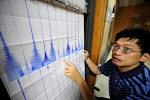

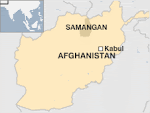







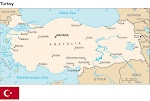
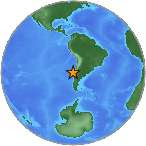




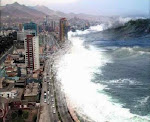

.jpg)


.bmp)
No comments:
Post a Comment